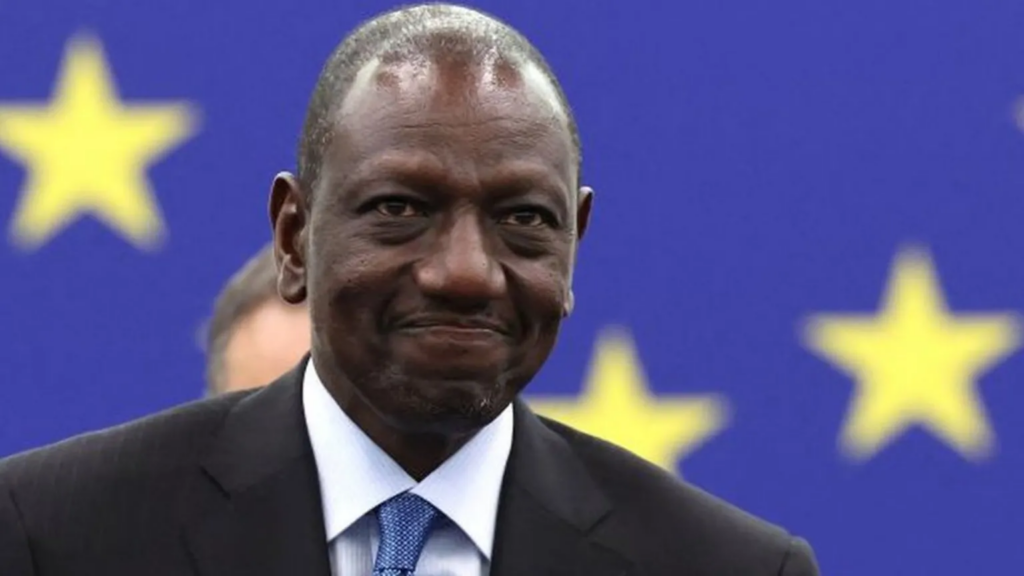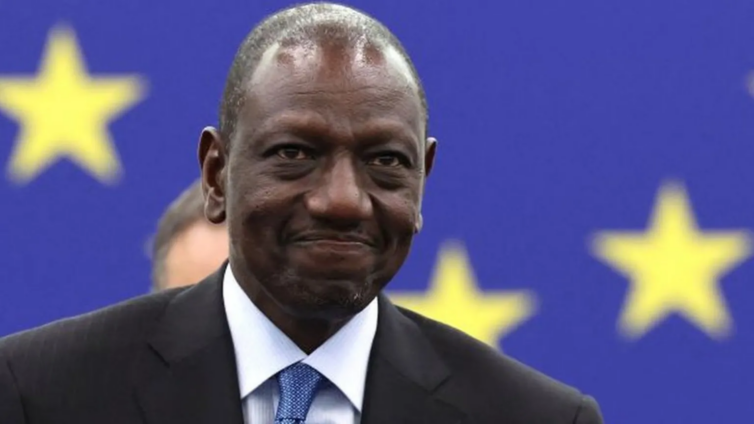The Kenyan Court of Appeal has given the go-ahead for a controversial healthcare insurance levy, overturning a previous ban.
The Social Health Insurance Fund (SHIF), one of President William Ruto's key policies, seeks to provide affordable healthcare to all Kenyans.
But it has proved unpopular with many, who see it as a new tax.
Critics say the levy will aggravate the cost-of-living crisis, which fuelled a wave of protests last year.
The rollout of the SHIF was stopped by the High Court last November following a petition by businessman Joseph Enock Aura, challenging sections of the scheme.
This, alongside the suspension of a controversial housing levy, rattled President Ruto, who has recently publicly accused some unnamed judges of corruption. He said the judiciary was working with the opposition to block his government's projects, sparking protests from lawyers.
The SHIF replaces the decades-old National Health Insurance Fund (NHIF), which has lost billions of taxpayer-contributed funds to corruption.
On Friday, a three-judge bench lifted the ban, saying the suspension posed a "real and present danger to the health rights of countless citizens who are not parties to the litigation".
However, the court suspended sections requiring mandatory registration to the scheme.

All workers are expected to contribute 2.75% of their salaries towards the new health fund.
The new law does not address what happens when individuals cannot afford contributions but President Ruto said his government would pay for those unable.
Critics of the new health plan say the 2.75% deduction is a huge increase on what they paid to the NHIF, coming on top of the recent rise in fuel prices and living costs.
Some also fear that the new social healthcare body will spend most of the collected funds on administrative expenses like the current NHIF, leaving few resources for direct healthcare costs.
In June last year, Mr Ruto signed the Finance Act, another unpopular piece of legislation that introduced a 1.5% housing levy payable by both employers and employees.
The government says it seeks to provide affordable housing to low income earners. The levy has also been challenged in court.
Latest Stories
-
Inaki Williams defends brother Nico after fans erase image from mural amid Barcelona transfer rumours
3 minutes -
Next Joy Business Economic Forum comes off on June 25, 2025
24 minutes -
Scars of Hooliganism: Club officials know their hooligans – Eric Alagidede
36 minutes -
Cybersecurity must be core to financial governance – BoG First Deputy Governor
51 minutes -
Scars of Hooliganism: Violence drives away sponsors for the league – Kwesi Nyantakyi
55 minutes -
Kumasi Airport City project takes off – Asantehene calls for policies to attract local private capital
56 minutes -
Borderless Africa key to SME growth and economic independence – Prof Evans Gyasi
1 hour -
Scars of Hooliganism: Identifying hooligans in big crowd is challenging – Ghana Police
1 hour -
Trade Growth Network launched to empower Ghanaian SMEs and promote intra-African trade
1 hour -
‘We could have scored seven’ – Black Queens coach happy with friendly win over Malawi
1 hour -
Rebecca Ekpe shares vision as she targets GJA Vice President position
1 hour -
Ghana stun Uganda in opening game of 2025 Rugby Africa Men’s 7s in Mauritius
1 hour -
Declaring state of emergency over illegal mining premature – Mustapha Gbande
1 hour -
Iran cannot unilaterally shut Strait of Hormuz – NPA boss
2 hours -
Yango Delivery honours 500 top performing couriers at its partner conference
2 hours

